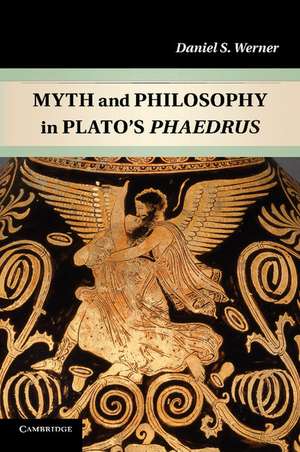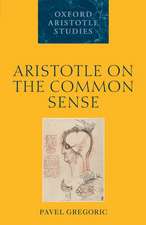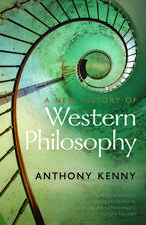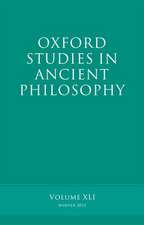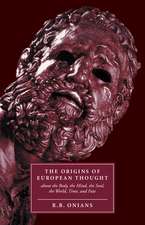Myth and Philosophy in Plato's Phaedrus
Autor Daniel S. Werneren Limba Engleză Paperback – 5 mar 2014
| Toate formatele și edițiile | Preț | Express |
|---|---|---|
| Paperback (1) | 375.74 lei 6-8 săpt. | |
| Cambridge University Press – 5 mar 2014 | 375.74 lei 6-8 săpt. | |
| Hardback (1) | 683.36 lei 6-8 săpt. | |
| Cambridge University Press – 8 iul 2012 | 683.36 lei 6-8 săpt. |
Preț: 375.74 lei
Nou
Puncte Express: 564
Preț estimativ în valută:
71.93€ • 74.77$ • 59.64£
71.93€ • 74.77$ • 59.64£
Carte tipărită la comandă
Livrare economică 07-21 februarie 25
Preluare comenzi: 021 569.72.76
Specificații
ISBN-13: 9781107629950
ISBN-10: 1107629950
Pagini: 310
Dimensiuni: 152 x 229 x 18 mm
Greutate: 0.46 kg
Editura: Cambridge University Press
Colecția Cambridge University Press
Locul publicării:New York, United States
ISBN-10: 1107629950
Pagini: 310
Dimensiuni: 152 x 229 x 18 mm
Greutate: 0.46 kg
Editura: Cambridge University Press
Colecția Cambridge University Press
Locul publicării:New York, United States
Cuprins
1. Introduction; 2. Boreas, Typhon, and the allegorization of myth; 3. The palinode: soul and eros; 4. The palinode: forms and knowledge; 5. The palinode: tradition and philosophy; 6. The cicadas; 7. Rhetoric and dialectic; 8. Theuth, Thamus, and the critique of writing; 9. The Phaedrus as a whole; 10. Conclusion.
Recenzii
'This book sets out to tackle some of the most vexing questions pertaining to one of the most challenging and perplexing of Plato's dialogues, the Phaedrus … the discussion is always fresh, clear, helpful, sophisticated, and detailed. As well as appealing to experts, it succeeds in orientating the newcomer quickly with many key debates and controversies surrounding the Phaedrus … any scholar seeking to maintain an alternative view on Plato's myths in the Phaedrus will need to address the very strong challenge posed by this book. The book's greatest value lies in the penetrating close analysis of the text itself: there are some real highlights and Werner's readings will be of much help not only to students of the Phaedrus, but to all scholars interested in Plato's literary and philosophical practice.' Philosophy in Review
'… a well-written, meticulous, and insightful examination … The command of the secondary literature is obvious, and readers will be repeatedly impressed with Werner's ability to call up particular passages from disparate works of scholarship and situate himself in relation to them. Werner is also excellent at pursuing the details and meaning of the references that Plato puts into his myths … an important contribution to the study of this dialogue and to Plato's use of myth generally. Future scholarship will need to take this stimulating study into account.' Journal of the History of Philosophy
'This is a valuable new work that uses a relatively narrow focus to broaden our general perspectives on the Phaedrus in particular, and on Plato's use of myth and thought about philosophical discourse in general. Werner has not (and does not claim to have) wrestled Proteus into submission. It would be a shame if he had. He has, however, opened up a very promising new angle of approach.' Bryn Mawr Classical Review
'… a well-written, meticulous, and insightful examination … The command of the secondary literature is obvious, and readers will be repeatedly impressed with Werner's ability to call up particular passages from disparate works of scholarship and situate himself in relation to them. Werner is also excellent at pursuing the details and meaning of the references that Plato puts into his myths … an important contribution to the study of this dialogue and to Plato's use of myth generally. Future scholarship will need to take this stimulating study into account.' Journal of the History of Philosophy
'This is a valuable new work that uses a relatively narrow focus to broaden our general perspectives on the Phaedrus in particular, and on Plato's use of myth and thought about philosophical discourse in general. Werner has not (and does not claim to have) wrestled Proteus into submission. It would be a shame if he had. He has, however, opened up a very promising new angle of approach.' Bryn Mawr Classical Review
Descriere
Examines the role of myth in Plato's Phaedrus, arguing that it leads readers to participate in Plato's dialogues and to engage in self-examination.
